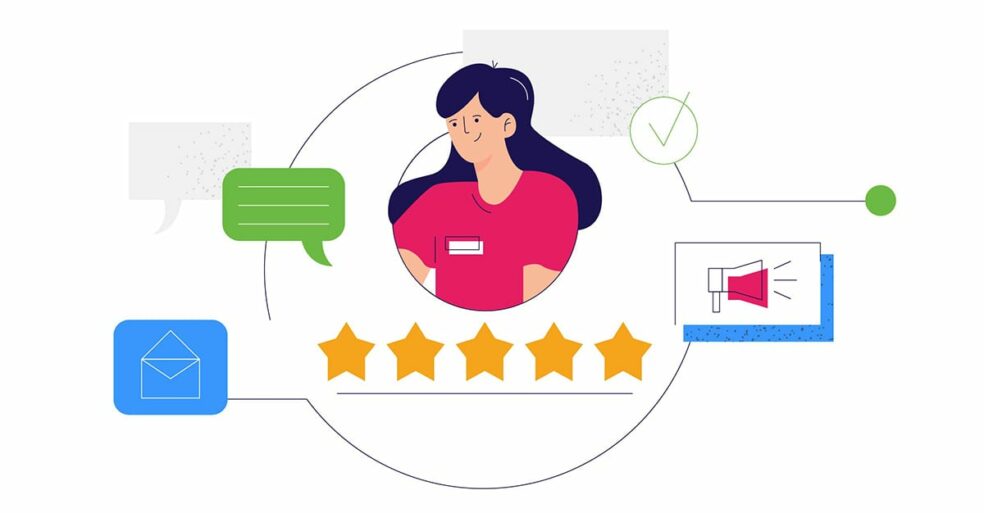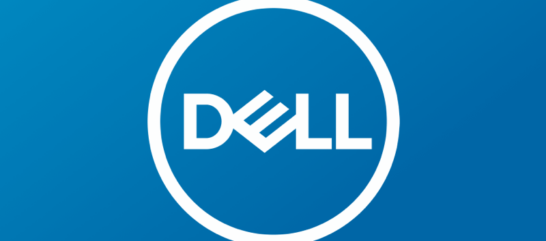Utilizing employee expertise can have a profound impact on marketing and sales. But it can go beyond that too and even contribute to improving the talent pool and fostering an internal community of knowledge sharing.
Yet with that said, many organizations (maybe even your own) are truly missing out on the value employee-generated content and the expertise that employees bring.
Think about the content you most engage with on a regular basis.
Do you tend to be engaging and intrigued by actual people or do you look at a faceless brand? I’d be willing to bet 99% of the time, you are more intrigued and interested when content or information is being shared by an experienced and passionate human.
In the world of content noise, standing out is key. And utilizing employee expertise and employee-generated content can drive real brand awareness, business results, and internal innovation.
So how can your company get employees sharing their expertise and creating content that your brand can use effectively? How do you convince employees of how valuable it is to share and create content?
Turning Employee Expertise Into Content
If you want your company to succeed in the digital transformation era, then there is no question that content is completely necessary.
It’s what keeps audiences seeing your brand, product and/or services on a regular basis. But it’s also a way to engage people and provide real value.
There are tons of stats related to content and social media, but here are a few interesting ones.
- Brand messages reached 561% further when shared by employees vs the same messages shared via official brand social channels (MSLGroup)
- Content shared by employees receives 8x more engagement than content shared by brand channels. (Social Media Today)
- 71% of buyers/readers say they were turned off by content that seems like a sales pitch. (Economist Group’s “Missing the Mark”)
- Consumers find UGC 9.8x more impactful than influencer content when making a purchasing decision. (Stackla)
And more than ever, employee personal branding is growing thanks to social media. This gives everyone a direct channel to share content and connect with people unfamiliar with your brand and an additional way to distribute content.
Think about it this way, let’s say an organization has 10,000+ employees and 2,500 of them are creating and sharing content on some regular occurrence. And we found that the average employee has 1,000 social connections, conservatively.
That means that is a potential additional reach of 2,500,000!
Distributing employee expertise
And the best way to distribute employee expertise is through their own content, which is called employee-generated content. When it comes to employee-generated content, employees’ own social media accounts are the obvious place to start sharing.
Why? Well let me tell you a few reasons:
- They have their own expertise to share that audiences are accustomed to
- Their following already trust them and want to listen to what they have to say
- The content does not always need high production value
Utilizing employee expertise is cost-effective, easy to use, more engaging, and helps employees establish their professional brand.
Ways Employees Can Share Expertise
Every employee has something unique to share, skills that others would find valuable, and knowledge that will be impactful to colleagues, co-workers, and other connections.
So what are some ways employee expertise can be shared externally and internally?
Unique commentary to social shares
The easiest way for employees to get involved and show their insights and views, is to add commentary to social shares.
Maybe it’s a third-party blog post, a new research study, or a company blog they are sharing — but the best thing an employee can do is add their own views to any link they share.
From an audience standpoint, they will get that employee’s personality, insights, and it doesn’t sound like a generic marketing copy that was pre-written.
Internal content that teaches others
While external content is incredibly important to your company and helps employees grow their personal brands, you cannot forget about internal content.
This is content meant only for those that work for the company, but it’s a great way for employee expertise to be distributed to others.
Sharing knowledge, experiences, and various learnings internally can improve other employees’ knowledge too.
It can also create a culture of innovation and productivity as people get more informed and experienced. Plus, people will be intrigued to learn from their colleagues or learn more about their expertise.
Creating content that is shared
While sharing links and blog posts is always a good mix, encouraging employees to create content and distribute will also be impactful.
When you have people who believe in your company and mission, know their contributions matter, and are recognized for their work, you have a team of people who are ready to create content around their interests, expertise, and opinions.
Once you prioritize the employee experience, then all you need is a platform for telling their story on social media.
What type of content might this be? Could be a text post, image with copy, a video, an interview the employee did, or even a company blog post the employee wrote.
Commenting on social posts
Another way to encourage employee expertise online is by having employees engaging on others social media posts. This is a simple way to showcase one’s knowledge, engage with others, but also get more people seeing the content and connecting.
Quickly, employees can build their authoritative authenticity and trustworthiness just by engaging and providing valuable responses to others’ content.
It’s often an overlooked aspect to driving business results, but can have a profound impact on your company and the employees’ personal brand.

How to Get Employees Comfortable Sharing Their Expertise
Now that the wheels are turning a bit about activating employee expertise online, there is one thing to remember before working on a strategy.
You have to build a team you trust, but also create a work culture where employees believe in the company, feel appreciated, and clearly know how their work and ideas contribute to the success of the business.
Managers often fret about mechanisms of accountability to ensure that their teams are on task, but the undervalued or ignored flipside to accountability is: appreciation.
Enabling employees to share their expertise is the best way for them to invite or “crowdsource” validation for what they are best at and most interested in.
Let employees broadcast their own disciplinary efficacy, instead of leaving the burden on managers to speculate about which carrots to put on whatever sticks to attempt to drive individuals forward. Don’t fear the bottom line, rather celebrate the upper limit by utilizing employee expertise.
Without employees feeling empowered, you’ll find it much more difficult to get employees enthusiastically creating content, sharing ideas, and going beyond their basic job duties.
If engagement and morale is low at your company, I’d consider figuring out how to improve that first before trying to encourage employees to be content creators for your brand.
Now, if your culture is in a good spot and you know employees are raving fans of their work, then you are ready to explore employee-generated content.
But even with a great culture, it does not mean that employees will initially feel comfortable sharing their expertise or creating content.
Here are a few ways to help get employees interested and comfortable becoming employee advocates. Once a culture of sharing begins, often sparked with executives on social media setting a precedent, then everyone can enthusiastically get onboard!
Identify current employee influencers first
Before going further into your planning, a great first step is to identify any current employee influencers within your organization.
You might be surprised to find quite a few employees who are actively sharing and creating content around their knowledge and the company.
Look for those who are most engaged at work and those highly active on social media.
That’s a good indication that such employees can lead your initiative and serve as the early-adopters who you work with on this strategy, which will encourage and teach other employees by their example.
Create a social and content policy
Naturally, your company will still need to set some guidelines and policies around social media at work and content creation.
For one, a social content policy protects your company and ensures there are some regulations in place. Two, it shows employees what’s okay to share and create, plus that it is encouraged and part of the work culture.
Keep in mind that social media in the workplace is organically kept in check by professional accountability, and any fear that your company social profiles will become a mess is both understandable but highly unlikely.
Don’t fear: your employees are already on social media, and the next step is to simply enable them to share their expertise at work.
But after you draft a content policy, post it on your advocacy platform, pin it to the top, and by doing so make this information accessible!
It should be easy to peruse these guidelines and zero employee effort should be exerted to find the information in the first place.
Too often organizations bury policies and can be a hassle to understand. Make it simple, clear, and accessible!
Provide training and resources
Besides policies, share information that will help your team’s employees understand why their expertise is valuable and how to utilize it in content and on social media.
Holding workshops or webinars for employees to engage with, ask questions, and learn.
And remember those employee influencers you connected with? See if they will help with this initiative and teach other employees how to be successful.
Additionally, if you work with EveryoneSocial we have a team of experts that provide training, tips, business reviews, webinars, and more to help employees succeed in social media and content creation.
Make the benefits clear (Personally & For the Company)
It’s important that you convey how employee expertise and content impacts the company, but also how individual employees will benefit too.
In order for this strategy to work effectively, both sides have to mutually benefit, which is a given when using an employee advocacy platform.
For the company, it will drive: web traffic, more social engagement, leads, sales, brand awareness, social recruiting.
And for the employee it can help with their personal branding, increases their own expertise, drives professional development, career growth, and other company incentives.
Provide incentives for more encouragement
While gamifying your employee expertise strategy and content can be a good idea, remember to offer monetary or credit awards only sparingly.
By relying on prizes in general, you end up with employees just spamming their networks to try and win a prize and it reeks of inauthenticity.
Now that doesn’t mean you can offer incentives like bonuses or cool things from time to time.
Instead get creative and mix in different ideas to reward employees. Maybe it’s recognition in the company newsletter, lunch with the CEO, a team prize, some sort of award, etc.
EveryoneSocial offers the ability to have leaderboards, which can drive some friendly competition but also be used for an incentive your company may want to explore.
What If Employee Experts Aren’t Strong Content Creators?
That’s the beauty of employee expertise and employee-generated content, it does not have to be super polished.
Not everyone is naturally a great writer or super creative, but this is what makes the content more authentic, personable, and human to audiences.
Don’t underestimate the impact and impressions that a simple piece of UGC can garner on say, LinkedIn for example – if it’s genuine, it will perform.
This is to say, content is not just about writing, it’s also as simple as taking a photo or video to share, maybe it’s providing a quote for company content, commenting on others work with insightful knowledge, or being interviewed about their work.
Employees have multiple ways to get involved, which can impact engagement, productivity, authenticity, and build more trust to outside audiences who are connected to employees or branded social accounts.
















